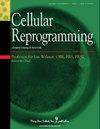根除肿瘤的新前沿:利用体内细胞重编程实现持久的癌症免疫疗法。
IF 1.2
4区 医学
Q4 BIOTECHNOLOGY & APPLIED MICROBIOLOGY
引用次数: 0
摘要
肿瘤通过下调抗原递呈和阻碍免疫反应来逃避免疫检测。1 型传统树突状细胞(cDC1s)在刺激细胞毒性 T 细胞对抗肿瘤方面至关重要。Ascic 等人现在证明了 PU.1、IRF8 和 BATF3 (PIB) 转录因子的原位重编程能力,它们能绕过肿瘤微环境的抑制作用,直接对大量肿瘤进行重编程,从而导致肿瘤的整体消退,同时激发全身免疫反应,防止继发性肿瘤的诱发。本文章由计算机程序翻译,如有差异,请以英文原文为准。
A New Frontier in Tumor Eradication: Harnessing In Vivo Cellular Reprogramming for Durable Cancer Immunotherapy.
Tumors evade immune detection by downregulating antigen presentation and hindering immune responses. Type 1 conventional dendritic cells (cDC1s) are vital in stimulating cytotoxic T cells against tumors. Ascic et al. are now demonstrating the in situ ability of PU.1, IRF8, and BATF3 (PIB) transcription factors to directly reprogram a plethora of tumors bypassing the suppressive effects of the tumor microenvironment, and leading to overall tumor regression while eliciting a systemic immune response that can protect from secondary tumor induction.
求助全文
通过发布文献求助,成功后即可免费获取论文全文。
去求助
来源期刊

Cellular reprogramming
CELL & TISSUE ENGINEERING-BIOTECHNOLOGY & APPLIED MICROBIOLOGY
CiteScore
2.50
自引率
6.20%
发文量
37
审稿时长
3 months
期刊介绍:
Cellular Reprogramming is the premier journal dedicated to providing new insights on the etiology, development, and potential treatment of various diseases through reprogramming cellular mechanisms. The Journal delivers information on cutting-edge techniques and the latest high-quality research and discoveries that are transforming biomedical research.
Cellular Reprogramming coverage includes:
Somatic cell nuclear transfer and reprogramming in early embryos
Embryonic stem cells
Nuclear transfer stem cells (stem cells derived from nuclear transfer embryos)
Generation of induced pluripotent stem (iPS) cells and/or potential for cell-based therapies
Epigenetics
Adult stem cells and pluripotency.
 求助内容:
求助内容: 应助结果提醒方式:
应助结果提醒方式:


